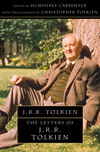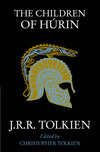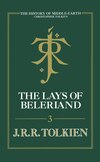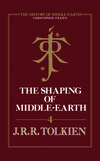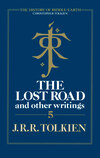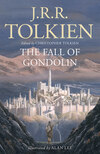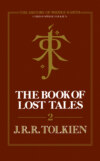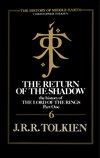Buch lesen: «The Letters of J. R. R. Tolkien», Seite 5
28 To Stanley Unwin
[On 1 June, Unwin told Tolkien that Houghton Mifflin had now sold approximately three thousand copies of the American edition of The Hobbit. In April, the book had been awarded a $250 prize by the New York Herald Tribune for the best juvenile story of the season. Meanwhile Rayner Unwin had criticised the second and third chapters of the new story for having too much ‘hobbit talk’.]
4 June 1938
20 Northmoor Road, Oxford
Dear Mr Unwin,
Thank you for your comforting news. It is indeed comforting, for in spite of unexpected strokes of luck, such as the American prize, I am in considerable difficulties; and things will not be improved in September, when I vacate my research fellowship. That will mean, of course, that the pressure on my writing time will be less, except that as far as I can see I shall have to return to the examination treadmill1 to keep the boat afloat.
Your previous letters of April 29 and May 3 have I fear long lain unanswered. I meant long ago to have thanked Rayner for bothering to read the tentative chapters, and for his excellent criticism. It agrees strikingly with Mr Lewis’, which is therefore confirmed. I must plainly bow to my two chief (and most well-disposed) critics. The trouble is that ‘hobbit talk’ amuses me privately (and to a certain degree also my boy Christopher) more than adventures; but I must curb this severely. Although longing to do so, I have not had a chance to touch any story-writing since the Christmas vacation. With three works in Middle English and Old English going to or through the press, and another in Old Norse in a series of which I am an editor under my hand on behalf of the author who is abroad,2 and students coming in July from Belgium and Canada to work under my direction, I cannot see any loophole left for months!. . . .
Yours sincerely
J. R. R. Tolkien.
P.S. My answer was delayed, because your letter arrived in the midst of our little local strife. You may not have noticed that on June 2 the Rev. Adam Fox3 was elected Professor of Poetry, defeating a Knight and a noble Lord. He was nominated by Lewis and myself, and miraculously elected: our first public victory over established privilege. For Fox is a member of our literary club of practising poets – before whom the Hobbit, and other works (such as the Silent Planet) have been read. We are slowly getting even into print. One of Fox’s works is Old King Coel, a rhymed tale in four books (Oxford).
29 From a letter to Stanley Unwin
25 July 1938
[Allen & Unwin had negotiated the publication of a German translation of The Hobbit with Rütten & Loening of Potsdam. This firm wrote to Tolkien asking if he was of ‘arisch’ (aryan) origin.]
I must say the enclosed letter from Rütten and Loening is a bit stiff. Do I suffer this impertinence because of the possession of a German name, or do their lunatic laws require a certificate of ‘arisch’ origin from all persons of all countries?
Personally I should be inclined to refuse to give any Bestätigung1 (although it happens that I can), and let a German translation go hang. In any case I should object strongly to any such declaration appearing in print. I do not regard the (probable) absence of all Jewish blood as necessarily honourable; and I have many Jewish friends, and should regret giving any colour to the notion that I subscribed to the wholly pernicious and unscientific race-doctrine.
You are primarily concerned, and I cannot jeopardize the chance of a German publication without your approval. So I submit two drafts of possible answers.
30 To Rütten & Loening Verlag
[One of the ‘two drafts’ mentioned by Tolkien in the previous letter. This is the only one preserved in the Allen & Unwin files, and it seems therefore very probable that the English publishers sent the other one to Germany. It is clear that in that letter Tolkien refused to make any declaration of ‘arisch’ origin.]
25 July 1938
20 Northmoor Road, Oxford
Dear Sirs,
Thank you for your letter. . . . . I regret that I am not clear as to what you intend by arisch. I am not of Aryan extraction: that is Indo-iranian; as far as I am aware none of my ancestors spoke Hindustani, Persian, Gypsy, or any related dialects. But if I am to understand that you are enquiring whether I am of Jewish origin, I can only reply that I regret that I appear to have no ancestors of that gifted people. My great-great-grandfather came to England in the eighteenth century from Germany: the main part of my descent is therefore purely English, and I am an English subject – which should be sufficient. I have been accustomed, nonetheless, to regard my German name with pride, and continued to do so throughout the period of the late regrettable war, in which I served in the English army. I cannot, however, forbear to comment that if impertinent and irrelevant inquiries of this sort are to become the rule in matters of literature, then the time is not far distant when a German name will no longer be a source of pride.
Your enquiry is doubtless made in order to comply with the laws of your own country, but that this should be held to apply to the subjects of another state would be improper, even if it had (as it has not) any bearing whatsoever on the merits of my work or its suitability for publication, of which you appear to have satisfied yourselves without reference to my Abstammung.1
I trust you will find this reply satisfactory, and
remain yours faithfully
J. R. R. Tolkien.
31 To C. A. Furth, Allen & Unwin
[Among the stories that Tolkien showed to his publishers during 1937, as a possible successor to The Hobbit, was a short version of Farmer Giles of Ham. Allen & Unwin liked it, but felt that it would need the companionship of other stories to make it into a book of sufficient length. They also, of course, encouraged Tolkien to write the sequel to The Hobbit.]
24 July 1938
20 Northmoor Road, Oxford
Dear Mr Furth,
The Hobbit ought to have come out this year not last. Next year I should have probably had time and mood for a follower. But pressure of work as a ‘research fellow’, which has to be wound up if possible by September, has taken all my time, and also dried up invention. The sequel to the Hobbit has remained where it stopped. It has lost my favour, and I have no idea what to do with it. For one thing the original Hobbit was never intended to have a sequel – Bilbo ‘remained very happy to the end of his days and those were extraordinarily long’: a sentence I find an almost insuperable obstacle to a satisfactory link. For another nearly all the ‘motives’ that I can use were packed into the original book, so that a sequel will appear either ‘thinner’ or merely repetitional. For a third: I am personally immensely amused by hobbits as such, and can contemplate them eating and making their rather fatuous jokes indefinitely; but I find that is not the case with even my most devoted ‘fans’ (such as Mr Lewis, and ? Rayner Unwin). Mr Lewis says hobbits are only amusing when in unhobbitlike situations. For a last: my mind on the ‘story’ side is really preoccupied with the ‘pure’ fairy stories or mythologies of the Silmarillion, into which even Mr Baggins got dragged against my original will, and I do not think I shall be able to move much outside it – unless it is finished (and perhaps published) – which has a releasing effect. The only line I have, quite outside that, is ‘Farmer Giles’ and the Little Kingdom (with its capital at Thame). I rewrote that to about 50% longer, last January, and read it to the Lovelace Society1 in lieu of a paper ‘on’ fairy stories. I was very much surprised at the result. It took nearly twice as long as a proper ‘paper’ to read aloud; and the audience was apparently not bored – indeed they were generally convulsed with mirth. But I am afraid that means it has taken on a rather more adult and satiric flavour. Anyway I have not written the necessary two or three other stories of the Kingdom to go with it!
It looks like Mr Bliss. If you think that is worthy of publication. I can bring it back to you, if you wish. I do not think that I personally can do anything to improve it.
I am really very sorry: for my own sake as well as yours I would like to produce something. But September seems quite out of the question this year. I hope inspiration and the mood will return. It is not for lack of wooing that it holds aloof. But my wooing of late has been perforce intermittent. The Muses do not like such half-heartedness.
Yours sincerely
J. R. R. Tolkien.
32 To John Masefield
[Masefield, then Poet Laureate, together with Nevill Coghill organised an entertainment in Oxford during the summers of 1938 and 1939, entitled Summer Diversions. In 1938 he invited Tolkien to impersonate Chaucer and recite from memory the Nun’s Priest’s Tale. He wrote to Tolkien enclosing some lines of verse with which he proposed to introduce him.]
27 July 1938
20 Northmoor Road, Oxford
Dear Mr Masefield,
I have no prelude of my own to fire off, and no objection as a performer to being preceded by the lines you send. In any case you are Master of the Diversions, and I am under your good authority.
Privately, as one student of Chaucer to another, I might perhaps say that these lines seem to me to allude to the erroneous imagination that Chaucer was the first English poet, and that before and except for him all was dumb and barbaric. That is of course not true, and is perhaps, even as a way of emphasizing the fact that he possessed a peculiar genius, which would at any period have produced work having a novel flavour, rather misleading. I do not personally connect the North with either night or darkness, especially not in England, in whose long 1200 years of literary tradition Chaucer stands rather in the middle than the beginning. I also do not feel him springlike but autumnal (even if of the early autumn) and not kinglike but middle-class. However, as I say, these are professional matters, about which the present occasion is hardly one to join battle.
I am not at all happy about the effect of Chaucer in general, or the Nonnes Prestes Tale in particular, in a supposed 14th. C. pronunciation. I will do my best, but I hope it will be sufficiently intelligible for some of the sense to get over. Personally I rather think that a modified modern pronunciation (restoring rhymes but otherwise avoiding archaism) is the best – such as I once heard you use on the Monk’s Tale a good many years ago.
Yours sincerely
J. R. R. Tolkien.
33 To C. A. Furth, Allen & Unwin
31 August 1938
20 Northmoor Road, Oxford
Dear Mr Furth,
I am not so much pressed, as oppressed (or depressed). Further troubles which I need not detail have occurred, and I collapsed (or bent) under them. I have been unwell, since I saw you – in fact I reached the edge of a breakdown, and was ordered by the doctor to stop short. I have done nothing for a week or two – being in fact quite unable. But I am beginning to feel a good deal better. I am now (tomorrow) going away for a fortnight’s holiday; which I had not planned and cannot afford, though it seems required by my own health and my youngest son’s. . . . .
I did not entirely forget ‘Farmer Giles’: I had it typed. I submit it now, for your consideration in its rather altered scope and tone. A good many folk have found it very diverting (I think that is the right word): but that is as may be! I see that it is not long enough to stand alone probably – at least not as a commercial proposition (if indeed it cd. ever be such a thing). It probably requires more of its kind. I have planned out a sequel1 (though it does not need one), and have an unfinished pseudo-Celtic fairy-story of a mildly satirical order, which is also amusing as far as it has gone, called the King of the Green Dozen.2 These I might finish off if Giles seems to you worthy of print and companionship.
In the last two or three days, after the benefit of idleness and open air, and the sanctioned neglect of duty, I have begun again on the sequel to the ‘Hobbit’ – The Lord of the Ring. It is now flowing along, and getting quite out of hand. It has reached about Chapter VII and progresses towards quite unforeseen goals. I must say I think it is a good deal better in places and some ways than the predecessor; but that does not say that I think it either more suitable or more adapted for its audience. For one thing it is, like my own children (who have the immediate serial rights), rather ‘older’. I can only say that Mr Lewis (my stout backer of the Times and T.L.S.) professes himself more than pleased. If the weather is wet in the next fortnight we may have got still further on. But it is no bed-time story. . . . .
Yours sincerely,
J. R. R. Tolkien.
34 To Stanley Unwin
13 October 1938
20 Northmoor Road, Oxford
Dear Mr Unwin,
. . . . I have worked very hard for a month (in the time which my doctors said must be devoted to some distraction!) on a sequel to The Hobbit. It has reached Chapter XI (though in rather an illegible state); I am now thoroughly engrossed in it, and have the threads all in hand – and I have to put it completely aside, till I do not know when. Even the Christmas vacation will be darkened by New Zealand scripts, as my friend Gordon1 died in the middle of their Honours Exams, and I had to finish setting the papers. But I still live in hopes that I may be able to submit it early next year.
When I spoke, in an earlier letter to Mr Furth, of this sequel getting ‘out of hand’, I did not mean it to be complimentary to the process. I really meant it was running its course, and forgetting ‘children’, and was becoming more terrifying than the Hobbit. It may prove quite unsuitable. It is more ‘adult’ – but my own children who criticize it as it appears are now older. However, you will be the judge of that, I hope, some day! The darkness of the present days has had some effect on it. Though it is not an ‘allegory’. (I have already had one letter from America asking for an authoritative exposition of the allegory of The Hobbit).
Yours sincerely
J. R. R. Tolkien.
35 To C. A. Furth, Allen & Unwin
2 February 1939
20 Northmoor Road, Oxford
Dear Mr Furth,
By the end of last term the new story – The Lord of the Rings – had reached Chapter 12 (and had been re-written several times), running to over 300 MS. pages of the size of this paper and written generally as closely. It will require 200 at least to finish the story that has developed. Could you give me any idea of the latest date by which the completed MSS. ought to reach you? I have worked under difficulties of all kinds, including ill-health. Since the beginning of December I have not been able to touch it. Among many other labours and troubles that the sudden death of my friend Professor Eric Gordon bequeathed to me, I had to clear up the New Zealand examinations, which occupied nearly all last vacation. I then caught influenza, from which I have just recovered. But I have other heavy tasks ahead. I am at the ‘peak’ of my educational financial stress, with a second son clamouring for a university and the youngest wanting to go to school (after a year under heart-specialists), and I am obliged to do exams and lectures and what not. Perhaps you ought to be thinking about Mr Bliss. And what about Farmer Giles? You had the MSS. of the enlarged form in September or October.
I think The Lord of the Rings is in itself a good deal better than The Hobbit, but it may not prove a very fit sequel. It is more grown up – but the audience for which The Hobbit was written has done that also. The readers young and old who clamoured for ‘more about the Necromancer’ are to blame, for the N. is not child’s play.fn4 My eldest son is enthusiastic, but it would be a relief to me to know that my publishers were satisfied. If the part so far written satisfied you, there need be no fear of the whole. I wonder whether it would not be a wise thing to get what I have done typed and let you see it? I shall certainly finish it eventually whatever you think of it; but if it did not seem to be what you want to follow The Hobbit there would be no desperate pressure. The writing of The Lord of the Rings is laborious, because I have been doing it as well as I know how, and considering every word. The story, too, has (I fondly imagine) some significance. In spare time it would be easier and quicker to write up the plots already composed of the more lighthearted stories of the Little Kingdom to go with Farmer Giles. But I would rather finish the long tale, and not let it go cold.
Let me know what you think. I may get part of the Easter Vac. free. Not all – I shall have some papers to set; and some work in preparation for a possible ‘National Emergency’ (which will take a week out).1 I have to go to Scotland either in March or April. It is conceivable I could finish by June. And the MSS. would be final (no knocking page-proofs about). But I should have no time or energy for illustration. I never could draw, and the half-baked intimations of it seem wholly to have left me. A map (very necessary) would be all I could do.
Yours sincerely
J. R. R. Tolkien.
36 To C. A. Furth, Allen & Unwin
[On 8 February, Furth sent a royalty cheque for The Hobbit, and told Tolkien that the middle of June was the latest date by which Allen & Unwin must have the new story if they were going to publish it by Christmas.]
10 February 1939
20 Northmoor Road, Oxford
Dear Mr Furth,
Thank you very much for your letter – and the enclosed cheque: which was rather a welcome tonic. The influenza has not damaged me much, though it caught me in a state of exam-exhaustion; but my throat seems to be getting worse, and I don’t feel very bright. . . . .
I will get my stuff typed and let you have it; and (if it meets with approval, and does not demand extensive rewriting) I think I shall make a special effort, at the expense of other duties, to finish it off before June 15th. . . . .
Did Farmer Giles in the enlarged form meet with any sort of approval? (I received the typescript safely.) Is it worth anything? Are two more stories, or any more stories of the Little Kingdom, worth contemplating? For instance the completion in the same form of the adventures of Prince George (the farmer’s son) and the fat boy Suovetaurilius (vulgarly Suet), and the Battle of Otmoor. I just wonder whether this local family game played in the country just round us is more than silly.
Yours sincerely
J. R. R. Tolkien.
37 To Stanley Unwin
[Allen & Unwin were publishing a revision by C. L. Wrenn of Clark Hall’s translation of Beowulf. Tolkien had agreed to write a foreword, and during the second half of 1939 he received several enquiries from the publishers about the progress of this. He left these enquiries unanswered until December, when Stanley Unwin himself wrote to find out what was happening.]
19 December 1939
20 Northmoor Road, Oxford
Dear Mr Unwin,
I was greatly comforted to receive your kind note this morning, even though it heaped hot coals of fire on my head. In spite of my troubles I have not really a sufficient excuse for not at least writing or responding to notes and enquiries. My accident just before the outbreak of war1 left me very unwell for a long while, and that combined with the anxieties and troubles that all share, and with the lack of any holiday, and with the virtual headship of a department in this bewildered university have made me unpardonably neglectful. I hardly knew how to cope with the further blow of my wife’s illness, threatening to come to a climax all through the summer and autumn.
The worst seems over now. I have her back, an invalid but apparently mending at last, and the fear of cancer which was at first entertained apparently dismissed. I am uncommandeered still myself, and shall now probably remain so, as there is (as yet) far too much to do here, and I have lost both my chief assistant and his understudy.
I will try and collect my weary wits and pen a sufficient foreword to the ‘Beowulf’ translation, at once. . . . .
May I turn now to The Hobbit and kindred affairs. I have never quite ceased work on the sequel. It has reached Chapter XVI. I fear it is growing too large. I am not at all sure that it will please quite the same audience (except in so far as that has grown up too). Will there be any chance of publication, if I can get it done before the Spring? If you would like to try it on anyone as a serial I am willing to send in chapters. But I have only one fair copy. I have had to go back and revise early chapters as the plot and plan took firmer shape and so nothing has yet been sufficiently definitive to type.
I suppose the German edition of The Hobbit will probably never appear now? It was a great disappointment to my son and myself. We had a bet between us on the version of the opening sentence. My son is now in Italy,2 whither he has carried The Hobbit, and occasionally sends enquiries for more of the sequel, which he knew and approved as far as it went. But there is no time, or very little even when one steals from other more dutiful claims.
I wish you would publish poor ‘Farmer Giles’ in the interim. He is at least finished, though very slender in bulk. But he amuses the same people, although Mr Furth seemed to think he has no obvious public. He has mouldered in a drawer since he amused H. S. Bennett’s3 children when I was in Cambridge last March. Admittedly they are bright children. . . . .
Yours sincerely,
J. R. R. Tolkien.
